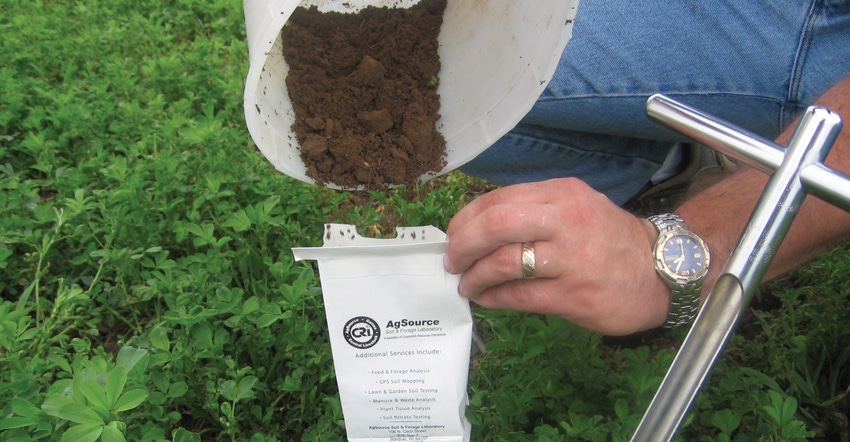July 5, 2017

Accurate data leads to accurate decisions, which means higher yields and more profit. But how can you know your ag testing lab is giving you accurate results?
Most states require labs doing soil, plant tissue and manure testing be certified. The certification process involves performance testing that verifies a lab’s accuracy.
An ag lab should be certified by the North American Proficiency Testing (NAPT) or the Agricultural Laboratory Proficiency Program (ALP), says Jim Friedericks, outreach and education adviser for AgSource Laboratories at Ellsworth.
You should be able to find this information on your lab’s website, he says. Both NAPT and ALP submit reference samples to laboratories on a quarterly basis for analysis. Lab results from the participating laboratory are then compared with data from all of the participating laboratories.
How accurate is the testing lab you use?
Many state agriculture departments use these programs to determine laboratory accuracy for approving laboratory certification. Both programs manage soil, plant and irrigation water samples, and are operated by a third-party, nonprofit association.
There are a number of methods validated by university research used in soil testing. Agronomy experts in various regions of the United States meet regularly to discuss the latest research to set standards for quality testing.
Use the following "Quick Quality Questions" as a simple, effective way to judge the accuracy of your testing laboratory.
• Which proficiency testing programs does your lab participate in?
• What are the processes and procedures in place to ensure accuracy?
• Is your lab staffed with full-time employees, 52 weeks per year? What proportion of your staff are employed full time year-round?
• How is data transferred from instruments to the reporting system and to the client?
Does your lab take steps to ensure accuracy?
It is also good to know what your lab does to insure both quality and accuracy, says Friedericks. Accuracy is achieved by following appropriate methods and confirmed by using multiple checks of a method. Some of these performance checks are internal and some are external, “blind” performance samples. The precision in a lab is the ability to get consistent results on the same test. Precision is achieved by carefully following a method and using instrumentation that is well maintained and properly calibrated.
Your lab should maintain complete records of all supporting quality control (QC) data for each report item, he says. The aim of this program is simple: To provide error-free, substantiated, analytical data of precision and accuracy, governed solely by instrumental limitations.
Stick with a lab you like
Find a lab you like working with and are familiar with and stick with it, Friedericks advises. “It is important to be consistent over time. But if a lab suddenly gives you test results that are unexpected, ask them to re-run the test for you to confirm results.”
Your lab should have someone involved with the testing process available to answer questions and help interpret the data if needed. Friedericks says it is often best to have one lab do all of your testing. For example, a manure management plan requires testing both the manure and the soil, and using the data from both in the plan. Some labs offer a volume discount if all testing is done through the same labs.
Don’t hesitate to ask questions
“AgSource Laboratories is one of the certified labs serving the Midwest which use a rigorous quality control (QC) program supported by an experienced and dedicated analytical team. We welcome our customers to ask questions, so they understand our testing program and the results they are getting,” says Friedericks.
The AgSource lab at Ellsworth in central Iowa is the newest facility in the AgSource group of labs. The company has labs at Bonduel, Wis.; Lincoln, Neb.; Ellsworth, Iowa; Umatilla, Ore.; and a food and environmental lab in Marshfield, Wis. AgSource specializes in agricultural and environmental laboratory analysis and information management services. A division of Cooperative Resources International, AgSource provides testing services to clients in the U.S. and across the globe. Learn more at agsource.com/laboratories.
Source: AgSource Laboratories
You May Also Like




